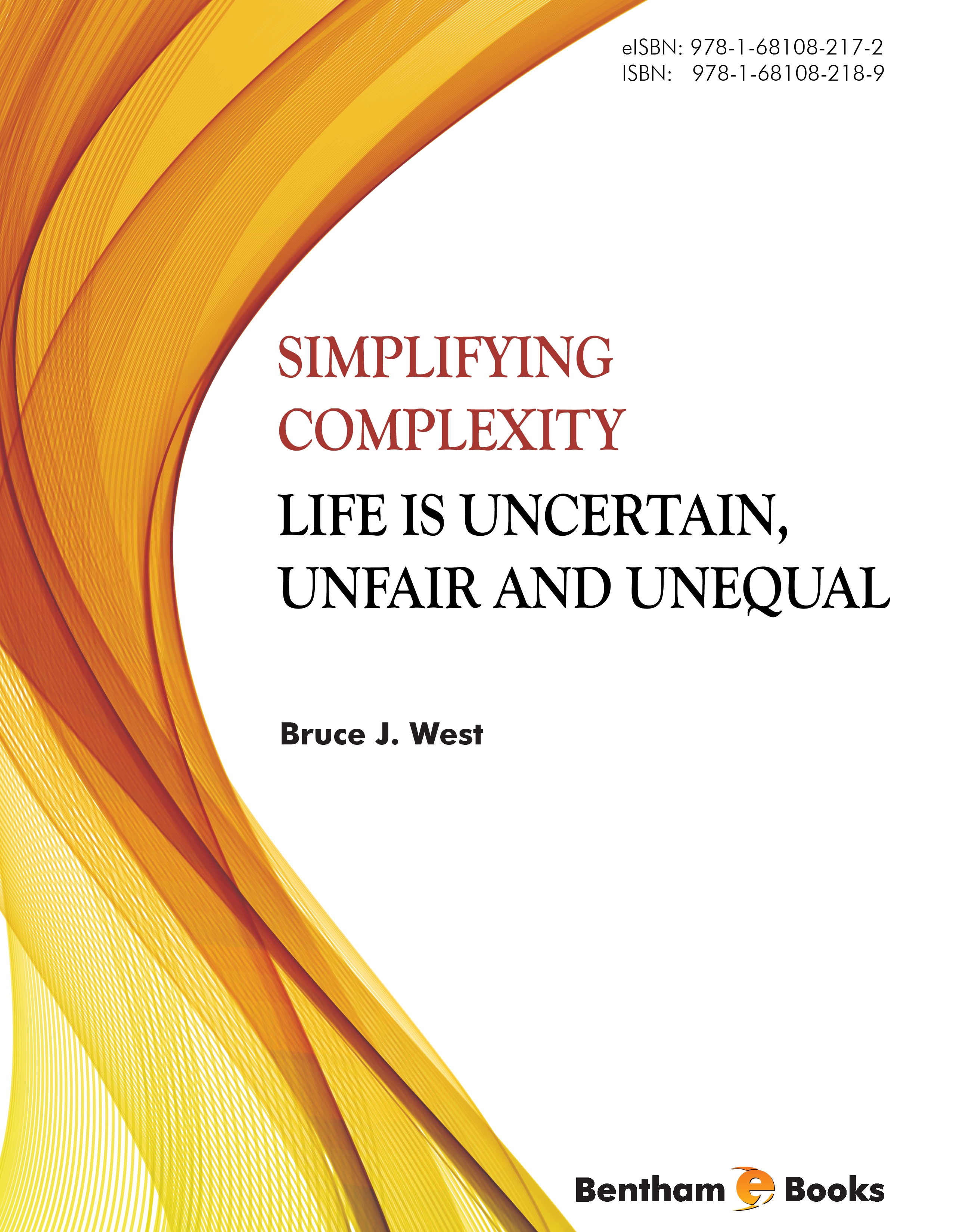Reviews
Review 3
Book Review: Simplifying Complexity: Life is Uncertain, Unfair and Unequal
The world is complicated. Just look at the tax code. But it is also complex, with many interconnected parts and emergent behaviors. Just look at terrorist groups organizing over social media. Bruce West has a long history of working on the math and science of the individual's, society's and nature's complexities. Typically, in a publication, he would be writing down equations and following them through to their solutions and consequences. Here he takes on a more difficult task that demands a deeper insight, of describing complexities in words and graphs. In this endeavor, he succeeds. With this expansive book he covers an array of fascinating topics. The statistics of some topics involves distributions with long heavy tails, be they for wealth, word frequency, healthy heart beats, or earthquakes. This is the crux of West's use of the terms "unfair, and unequal" that some measure can outshine the average by orders of magnitude, making the "average" an undesirable place to be. While a pendulum swings back, a double chaotic pendulum might not, and this type of behavior falls into the category of "uncertain". West finds in nature and in human endeavors that unfairness and uncertainty are unavoidable and understanding this is important for policy makers and disaster planners. A rich variety of people, such as, Montroll and Mandelbrot, are introduced and topics are explained in both an historical and practical context. Concepts explained include chaos, fractals, tipping points, bubbles, criticality, small word networks, 1/f noise and power law scaling. This book is an excellent starting point for the introduction of complexities in modern life and a jumping off point for those who wish to go further to learn the mathematics, science and technology underpinning these ideas.
Michael F. Shlesinger
Office of Naval Research
Arlington, VA, USA
Review 4
Simplifying Complexity discusses the use of complex network models to study important issues and problems in the world. Author Bruce West provides a scientific framework that embraces complexity, explains network models, modernizes the philosophy of science, and demonstrates the emergence of new methods of academic thinking and problem solving in the modern world. West explains this science through examples, anecdotes, biography, self-reflection and history. Even though this book contains little mathematics or science, it is filled with mathematical and scientific ideas. West provides the reader with cognitive maps of science and its changing patterns through his experiences as a research scientist. West is clear in showing the various ways that issues in society are uncertain, unequal, unfair, and therefore often complex. Most importantly, he then discusses the impact of those results on individuals and society. From West’s perspective, society has been all too enthralled with simplicity in the forms of linearity, normalcy, central tendency, and reductionism, and he demonstrates when these ideas have failed us in our attempts to describe and understand our complex world. West's explanation of science and its place in society and his analysis of political issues (particularly taxation, political ideologies, and organizational strategies) are powerful examples. The last chapter brings together many of his ideas as he carefully explains network science methodology to study issues in modern society. This book makes the reader think and learn because the presentation of ideas is simultaneously interesting, controversial, engaging and informative.
Chris Arney, Professor of Mathematics, United States Military Academy, West Point, NY, USA
Dec 14, 2017

